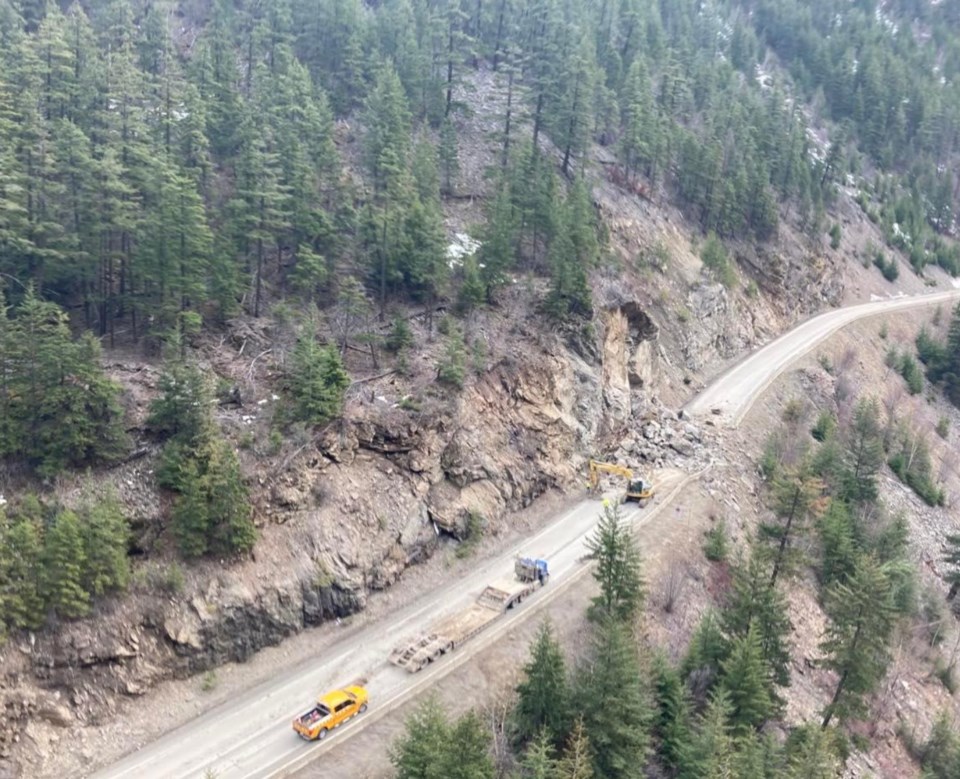Highway 99 south of Lillooet remains closed in both directions with no estimated time for reopening as crews work to clear a rock slide that occurred on Sunday, March 6.
The slide occurred about 10 kilometres south of Lillooet, and did not strike any vehicles, according to the provincial Ministry of Transportation and Infrastructure.
A geotechnical assessment has determined that blasting will be required to remove an overhanging section of the rock slope before clearing of the highway can safely take place, a ministry spokesperson said.
There is currently no estimated time of reopening. Drivers can check drivebc.ca for updates.
“Rockfall is common throughout this area based on its topography. The ministry’s Provincial Rock Slope Stabilization Program is aimed at reducing rockfall hazards to the travelling public,” the spokesperson said, adding that the $3.5-million annual program includes emergency response to rockfall events, as well as large-scale stabilization projects on high-hazard rock slopes for long-term rock fall hazard reduction. The program manages more than 21,000 slopes on main highways across B.C.
The ministry uses a Rockfall Hazard Rating System along all main highways to evaluate and rank the relative rockfall hazard of slopes throughout the province, the spokesperson said. The system prioritizes the province’s rockfall mitigation investments to ensure the highest priority sites are addressed.
“Proactive rock slope stabilization projects are determined considering the Rockfall Hazard Rating Score, rockfall history, traffic volume, significance of the highway, cost/benefit and other factors,” the spokesperson said.
“March is the most active month for rockfall activity. Historically, rockfall activity in March is two to three times more active due to precipitation and frequent freeze/thaw cycles that occur at this time of year.”
Find more info on rockfalls in B.C. here.




